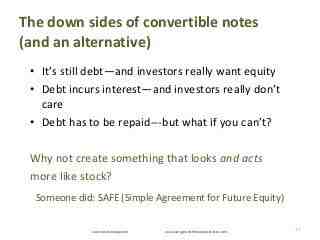How can I be a millionaire?
Contents
- 1 How can I be a millionaire?
- 2 Why do banks sell structured products?
- 3 How much savings should I have at 35?
- 4 Will Tesla do a stock split?
- 5 Will the 10 dollar bill be paid to the bearer on demand?

8 Tips to Become a Millionaire
- Avoid Debt.
- Early and Consistent Investment.
- Make Savings a Priority.
- Increase Your Income To Achieve Your Goals Faster.
- Cut Expenses Not Needed.
- Keep your Millionaire Goals Front and Center.
- Working with Investment Professionals.
- Put Your Plan on Repeat.
Why do banks sell structured products?

Structured products offer investors the potential to achieve results that are related to the performance of an index or basket of securities. Rates of return vary and are generally paid at maturity, along with the amount to face the investment, subject to the issuer’s credit risk.
Why do banks issue structured products? Use. Structured products provide access and the ability to capture potential enhanced returns and/or capital gains based on a market view of how a state financial instrument representing a traditional asset class is expected to perform. Structured products can be used to change the risk profile and awful again.
What is the benefit of structured products?
Other benefits depend on the type of structured product, as each is different. These benefits can include, principal protection, low volatility, tax efficiency, returns that are greater than those provided by the underlying asset (leverage), or positive yields in a low yield environment.
Why do clients buy structured products?
They offer a wider range of investment opportunities than other types of investments. And, they can work for practical purposes such as adding diversification to the investment portfolio, protecting against currency risk and even helping manage cash flow.
What are the two main benefits of a structured deposit?
The potential for higher returns compared to time deposits. Exposure to assets and/or markets that are usually inaccessible to retail investors. Diversify investments into other financial products. Investors will receive 100% of the Principal Amount invested if the Structured Deposit is held until maturity.
Is a structured product a good investment?
Structured products are a good investment if you don’t want to risk all your capital. Since most of your money is set aside for protection, Structured Products offers a moderate risk investment method. You will only lose on this investment if the counterparty or deposit taker becomes solvent.
Why do banks sell structured notes?
Derivative values are derived from the underlying asset or group of assets, also known as benchmarks. Investment banks claim structured notes offer asset diversification, the ability to take advantage of stock market performance, and downside protection.
What are the pros and cons of structured notes?
The advantages of structured notes include a higher repeat potential than CDs, participation in market upside while also limiting downward exposure, and note parameters that are adjusted to suit your risk level. Some structured notes can have a â € œbuffer, â € which explains the downside protection.
How do banks make money on structured notes?
Structured notes are usually sold by brokers, who receive an average commission of around 2% from the issuing bank. Although investors do not pay these costs directly, they are built into the principal value as markup or costs are posted.
What are the benefits of structured notes?
The flexibility of structured notes allows them to provide a variety of potential payoffs that are difficult to find elsewhere. Structured notes can offer increased or decreased upside potential, decreased risk, and general volatility.
How do banks make money on structured products?
Banks paid an advance fee for creating and issuing structured notes, that’s part of the transaction cost. And that’s where banks want to make their money. … Structured note issuers want to issue cheap debt, earn a reasonable fee to make customized investments, and see clients happy with the results.
How do issuers make money structured notes?
Structured records are not direct investments, but they are derivatives. This means that they track the value of another product. The return on a structured note depends on the issuer repaying the underlying bond and paying a premium based on the linked asset.
What is structured products in banking?
Structured products are designed to meet unique risk-return objectives. This goal is achieved by taking conventional underlying assets and replacing regular returns with non-traditional payments from other underlying assets.
How much savings should I have at 35?

You should have twice your annual income saved by 35, according to the often cited Fidelity retirement chart.
Will Tesla do a stock split?

Tesla’s board approves a 5-for-1 split on its soaring stock. Investors will receive a dividend of four additional shares for each share held on August 21st. The stock will be distributed after trading closes on Aug. 28 and the stock will start trading on a “split-adjusted basis” on Aug.
Will the 10 dollar bill be paid to the bearer on demand?

1963: WILL MAY TO THE BEARER ON DEMAND REMOVED FROM OBVERSE AND IN GOD WE TRUST ADDED TO THE OPPOSITE OF $ 10 FEDERAL RESERVE NOTES. Also, this obligation is abbreviated as the current word, NOTE THIS IS A LAW TENDER FOR ALL DEBT, PUBLIC AND PRIVATE.
